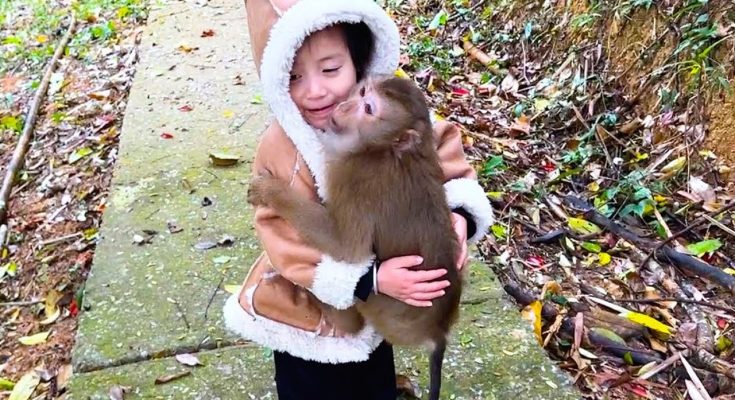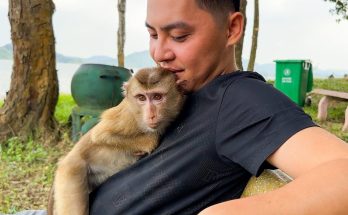Monkey Kaka has become a beloved symbol of love, care, and second chances. Rescued from a difficult past, Kaka now lives a joyful life full of affection and playful adventures. But behind Kaka’s heartwarming journey lies a deeper question that many animal lovers quietly ask: Is rescuing animals always the right choice?
Kaka was rescued young, weak, and in poor condition. The humans who took him in gave him food, shelter, medical care, and—most importantly—love. His transformation is undeniable. Videos of Kaka cuddling with Dad, playing with Mit, and exploring the world touch millions of hearts.
But critics argue that not every rescue ends so happily. Some wild animals, once removed from their habitat, lose the chance to live freely. Others may become too dependent on humans or suffer emotionally when separated from their natural families.
In Kaka’s case, the rescue was likely the only chance at survival. He now thrives under care, but his story also raises important ethical questions:
- Should every animal be rescued, or only those who are sick, injured, or abandoned?
- Can we give rescued animals a life that respects their natural instincts?
- Are we truly helping, or sometimes interfering?
Kaka’s life is a reminder that rescue must be done with compassion and wisdom. It isn’t just about saving—it’s about giving an animal the chance to live well, safely, and with dignity. Sometimes that means caring for them in a home. Other times, it means letting them stay wild.
Monkey Kaka’s story doesn’t answer every ethical question—but it invites us all to think more deeply, love more fully, and rescue with both heart and responsibility.



